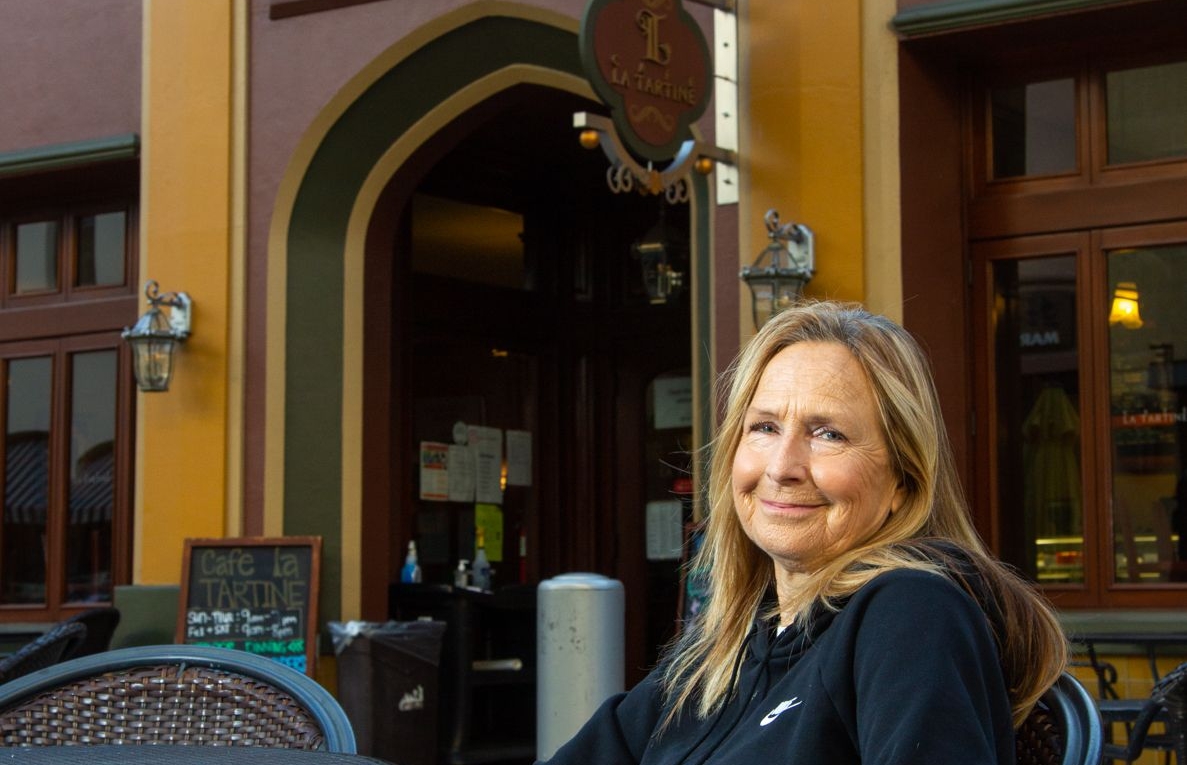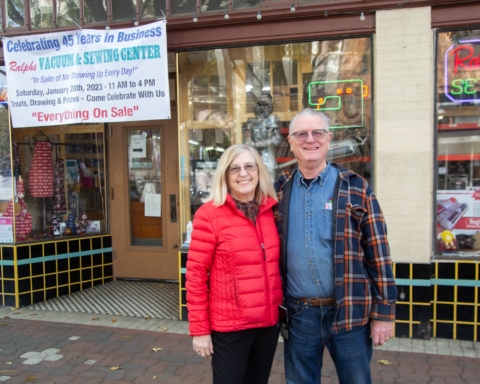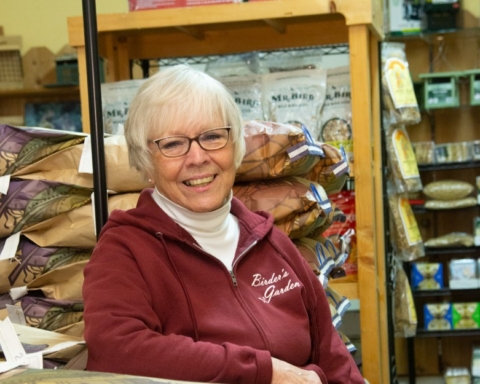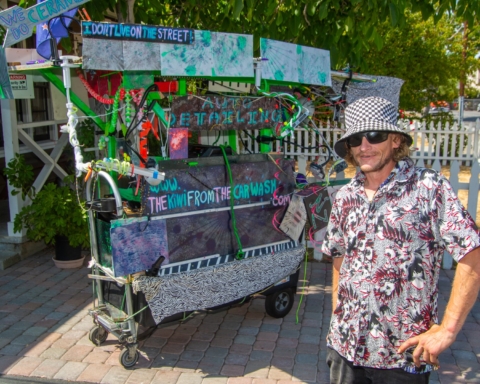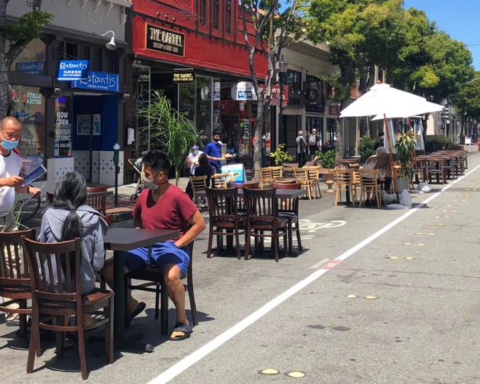By Kathleen Pender
For many businesses in Redwood City and surrounding towns, getting hit with the Covid-19 crisis was like slamming into a concrete barrier at 60 miles per hour. The economy had been running full steam, powered by the region’s seemingly unstoppable tech sector. San Mateo County’s gross domestic product grew nearly 4 percent in 2019, almost twice the national average. Its unemployment rate at the end of that year was a razor-thin 1.8 percent, half the national average. Redwood City was leaning with office workers, restaurants, nightlife and new housing.
That came to a screeching halt March 17 last year when seven Bay Area counties imposed the nation’s strictest lockdown orders. Most businesses that were not deemed essential and couldn’t operate remotely had to shut down, at least temporarily. Although restrictions have eased, tightened and eased again, California in late January still had the most coronavirus restrictions of any state, according to WalletHub.
The county’s unemployment rate seesawed, from a high of 11.4 percent in April to 5.8 percent in December, when the county shut down outdoor dining, salons, barbershops and most private gatherings. That order was lifted in late January, although most businesses still must operate with reduced capacity and comply with safety protocols.
Some businesses have fared better than others, depending on location, sector and their ability to get government assistance, rent breaks and adapt to changing rules. “The overarching business climate is mixed. Some industries and companies are doing well, others not as much,” said Rosanne Foust, CEO of the San Mateo County Economic Development Association. The same could be said of some companies. Sales of Redwood City-based Impossible Foods’ plant-based Impossible Burger dipped in March following strict shelter-in-place orders but a planned rollout to grocery stores accelerated.
Empty Offices
Businesses that relied on office workers were especially hard hit. Specialty’s Cafe & Bakery, which did a brisk business catering corporate meetings, filed for bankruptcy and closed all 50 locations —including ones in San Mateo, Foster City and Redwood Shores. The company gave away its remaining frozen cookie dough from its Redwood City warehouse.
Likewise, Teresa Lindhartsen and her business partner closed Alana’s Cafe in Redwood City in July and have no plans to return. “There is just not the foot traffic there used to be. Everyone is working from home. During the daytime, there is nobody out,” she said. They still operate Alana’s Cafe and Sixto’s Cantina on Burlingame Avenue in Burlingame, but neither eatery is as busy as they were pre-pandemic.
This story was originally published in the March edition of Climate Magazine.
“My business partner and I are working harder than ever, Lindhartsen said. “One of us is here all the time, making sure everybody has a job, trying to be conscientious with hours, so we don’t overstaff. If it’s slow, people are sent home,” she added. That didn’t happen before the pandemic because “we were busy all time.”
Widening Gap
The pandemic has widened the wealth gap, among people and businesses. In San Mateo County, “we have a segment of society that can go out and spend at their favorite places,” County Manager Mike Callagy said. But a lot of small businesses “are teetering on the brink. They are not able to sustain long periods of time without revenues. They employ so many critical workers in this county. This vaccine is a miracle, let’s hope it results in a miracle for these small businesses.”
Stephanie Kolkka has seen both sides of this coin. Kolkka Furniture, a high-end metal furnishings business she runs with her family in Redwood City, “is really busy,” she said. “Our clientele is wealthy. They are staying home, bored as hell” and willing to upgrade their surroundings.
But Kolkka’s Redwood City boutique, Brick Monkey Squared, suffered when Century Theaters across the street went dark. She closed it in December. Her landlord was willing to let her out of her lease, which ends in September, but she decided to sublet the space to Ariana and Alessia Presotto, who opened a new boutique in February.
Alessia worked at Brick Monkey Squared in high school. Now 21, she is majoring in design at the University of Southern California. Ariana, 22, has a degree in business and is using savings from her first job as a tech recruiter in San Francisco to open the store. It’s named Madison Avenue after the street in Redwood City where they grew up. They will sell clothes and small home items, with an emphasis on local brands.
“We have gotten a lot of support from family, but I can hear the worry in their voices,” Ariana said. The sisters know it’s a risk opening during a pandemic, “but we both decided there is never going to be a perfect time to do this.”
Green Shoots
Madison Avenue may be one of the “green shoots” of economic growth that signal recovery during a downturn. There are others. Craig and Dawn Saxton, who owned Specialty’s before selling it to the Mexican firm FEMSA Comerico, bought its trade name and other assets out of bankruptcy and plan to reopen a Specialty’s outlet in Mountain View and perhaps elsewhere.
A huge increase in new business applications is another encouraging sign. Applications nationwide plummeted in March and April last year, but then began rising and surged in the second half of 2020, ending the full year with a 24 percent increase over 2019, according to the U.S. Census Bureau’s “New Business Formation” statistics. January’s total was 73 percent ahead of January 2020.
In California, new business applications were 19 percent higher in 2020, and up 53.5 percent in January.
The Census Bureau gets this seasonally adjusted data from applications for Employer Identification Numbers. Companies that hire employees must get this number from the Internal Revenue Service. Sole proprietors without employees usually don’t have to, although many do for other reasons. The Census Bureau estimates that only about a third of business owners that get an EIN hire employees.
New businesses applications typically rise during a downturn, but last year’s increase was much bigger than during the last recession. Unlike then, today the stock market and home prices are soaring and credit is much more available. “The top end of the economy, people are doing fine, there are economic opportunities,” said John Haltiwanger, an economist at the University of Maryland.
“By far the biggest surge in 2020 applications was online retailers,” he added. Applications for professional, scientific and technical services also swelled, as did trucking and warehousing — which also can be involved in online activity. “The pandemic has changed the structure of the way we do business. A big question is, how much of this is going to stick.”
Tracking Closures
Redwood City received 403 new business applications between April 1 and February 6, of which 217 were for home-based businesses. During roughly the same period, 140 businesses notified the city they were closing. Tracking business closures, however, is difficult because “the city may not immediately be notified if a business closed,” said Assistant City Manager Alex Khojikian.
Yelp has been tracking the number of businesses on its site that have closed since Covid-19 struck and reports that “bigger states and metros with higher rents and more stringent local (restrictions) for small businesses … have felt a greater toll.” The five-county San Francisco Bay Area, which includes San Mateo, had the second-highest closure rate of any metro area, after Honolulu. Roughly 1 out of 100 Bay Area businesses had permanently closed between March 1 and August 31, Yelp said.
Sectors with the lowest closures rates nationwide were professional services such as lawyers, architects and accountants; auto repair and towing shops, health care providers; and home-service providers such as contractors, plumbers, roofers and landscapers. The hardest-hit sectors included restaurants and bars, apparel retailers and the beauty and fitness industries.
San Mateo County estimates that about 230 of its roughly 3,700 food facilities closed during the pandemic. A sampling of local closures include Maverick Jack’s in San Carlos; The Old Spaghetti Factory, Oyster Boy, The Courthouse 21 and Sweet Bubble Waffle Co. in Redwood City; and Esposto’s Delicatessen, Vault 164 and Viognier in San Mateo. Susie Cakes temporarily shuttered its San Carlos and Menlo Park outlets, but plans to reopen them by early April.
Restaurant Roller Coaster
Restaurants “have been gutted, it has been so tragic to watch,” said Amy Buckmaster, president and CEO of Chamber San Mateo. “We’ve held hands, wiped tears, we have worked with them consistently on the recovery. It’s the up-and-down roller coaster.”
Patty Anagnostou, owner of Café La Tartine in downtown Redwood City, shut down in March and started doing takeout in May. The county allowed outdoor dining in June, and limited indoor seating in September. But indoor dining ended in November and outdoor dining was halted from mid-December through late January. She estimates revenues are down 80 to 90 percent. Her family owns the building, but she still pays rent, at a reduced rate.
“It’s disheartening, but we’re all going through it,” Anagnostou said. “I think it will get back to normal. I think people like to be around people and not work from home unless they have the luxury of being on some exotic island with a laptop.”
Fera and Mike Hashemi own Arya Steakhouse across the street. Their sales have been chopped in half. The 130-seat restaurant once did a lot of corporate events and private parties. That’s gone, but they’re surviving thanks to their loyal clientele. About 60 percent of their business is coming through delivery apps such as Uber, Grubhub and Doordash. Fera says they’ve cut prices, and have also cut staff, from 25 to six.
Retail Woes
Retailers have had a somewhat better go of it, especially those that amped up online sales, curbside pickup and delivery options. But some have thrown in the towel, including the entire Pier One chain. Bed Bath & Beyond is shutting down hundreds of locations including San Mateo.
Local retailer Diddams Party & Toy Store closed its Daly City location. “It was a marginal store that went to bleeding red,” owner Steve Diddams said. He’s cut staff from 75 to 25 and is negotiating rent reductions on his stores in San Mateo, San Carlos and Mountain View. “The landlords, I feel sorry for them, they have bills, they have mortgages,” but “I simply can’t pay the rent on half the sales.”
His business was based on social gatherings – birthdays, weddings, school and corporate events — that aren’t happening. Toy sales are holding up because parents will still buy their kids a birthday present, Diddams said. And his inflated-balloon business is doing swell. “They are an inexpensive, colorful, big decoration” and you can’t buy them online.
Diddams had to close for a couple months starting in March, but was able to reopen as an “essential business” because “we sell candy, nuts, drinks and our paper plates and napkins are considered sanitary supplies.” To adapt, he brought in “pallets and pallets of face masks” and stocked up on hula hoops, Frisbees, playground balls and other outdoor toys.
Diddams expects to be in “for a rough period probably through the first quarter of next year.” That makes it hard to order inventory he’ll need in nine months. His third-biggest supplier has folded. “I’m betting on a last-man-standing kind of rule,” he said. “Those of us who make it are going to clean up and there will be a lot of healthy businesses. This downturn is flushing out the weaklings.”
Martin Sullivan, who owns Marketing Direct Insurance Services, sells mostly home and auto policies from a storefront in Redwood City. “We do a lot of Latino business. Latinos like to come into your office,” to take out policies and pay their monthly premiums, he said. Since restrictions took effect last March, his new business has dried up, and renewals have slowed. Even before the pandemic, Sullivan said many of his clients were moving out of the Bay Area because of the high cost of living, and since then, many have moved because they lost their jobs. He has decided to expand his business in Lodi, where he lives, and move toward online rather than in-person sales.
Helping Hands
Sullivan, Diddams, Arya Steakhouse, Café La Tartine and many other local businesses got loans from the federal Paycheck Protection Program, which don’t have to be paid back if used for approved expenses, including payroll, utilities and rent. But the rules are complex and constantly changing. About 2,125 businesses in California’s 14th Congressional district, which covers most of San Mateo County, were approved for PPP loans ranging from $150,000 to $10 million last year, and many others received smaller loans, according to Small Business Administration data. The SBA is taking applications for a second round of PPP loans through March 31.
A federal program approved in December, nicknamed Save Our Stages, will provide grants up to $10 million each to qualified independent performing art venues and promoters, talent agents, motion picture theaters and nonprofit museums. Redwood City’s Fox Theatre, shuttered for roughly a year, will apply, said Ernie Schmidt, its general manager.
State and local governments are also lending a hand. As of mid-January, Great Plates Delivered provided almost 1.4 million meals from 75 San Mateo County restaurants to nearly 3,800 eligible older adults, with funding from the county, state and federal governments. The county has extended this program through March.
The San Mateo Strong Fund financed a variety of Covid-relief programs. Last spring it provided grants of $10,000 each to 350 small businesses and in the fall distributed an additional $1 million in grants to 100 small businesses that missed out in the spring, Foust said. The Strong fund received donations from the county, cities (including $300,000 from Redwood City), nonprofits, companies and individuals.
A new program will provide almost $2.4 million in grants up to $10,000 each to eligible small restaurants, breweries and wineries with a storefront in San Mateo County. This program was funded with $1 million from the Chan Zuckerberg Initiative, $1 million from the county’s general fund and $384,000 from the Silicon Valley Community Foundation and the San Mateo Credit Union Community Fund.
The county also partnered with the Renaissance Entrepreneurship Center to distribute $3.6 million in grants ranging from $5,000 to $25,000 each to owners of 173 very small businesses in certain ZIP codes.
Falling Through the Cracks
That’s a lot of help, but many businesses couldn’t qualify. Zareen Khan, who runs Zareen’s restaurants in Palo Alto and Mountain View, decided in 2019 to open an outpost on Broadway in Redwood City, to attract office workers. She started construction, but it was halted by the Covid shutdown, then the wildfires. It eventually resumed and the Indian-Pakistani restaurant opened in October. “It started out slow,” Khan said, and hasn’t gotten much assistance. She couldn’t get a PPP loan for that location, nor will she qualify for a county restaurant grant, because it wasn’t open in 2019.
At first she wasn’t allowed to put up a tent or tables in the street, because the fire department had blocked off the other half of Broadway for restaurants on that side of the street. In February, the city finally agreed to let her put up a small tent in the parallel parking spaces in front of her restaurant.
Finding good managers has also been challenging. “A lot of people are working now, or they are on unemployment and don’t want to work, or want to get paid in cash, which we can’t do,” she said. In hindsight, Khan says she still would have opened the Redwood City restaurant. “There will be a lot of pent-up demand when the vaccine kicks in.”
Rent Relief
Vivian Nguyen, owner of Bella Nails in San Mateo and Belmont, had to close three times in the past year. She tried to adapt by selling gift cards, do-it-yourself nail kits and other products online, but those revenues “were very minimal,” she said. What helped her survive was a PPP loan and temporary rate abatements from her landlords in the Laurelwood and Carlmont shopping centers.
Mike Picone, operations manager for Carlmont Village Shopping Center, waived or reduced rent for tenants who needed help during mandatory closured. Most were mom-and-pop operators; some had to sell a home or car as their income disappeared. “Any businesses we saw that were having trouble, we approached them and said we will consider making concessions, but it has to be validated,” Picone said. “We can do that because we are a family-owned business” and because there’s no mortgage on the property. Also, there is no demand for retail space, he said, although “there are a lot of people laying in wait,” for deals that may arise.
Brett Weber, a commercial real estate agent with Kidder Matthews, said he won’t know the pandemic’s impact on retail space “until we get back to work.” In Redwood City, he added, lease rates are being buoyed by demand from companies hoping to open cannabis storefronts. The city will permit up to six cannabis retailers; the application period closed Feb. 25.
The office market, however, “is dead right now,” Weber said.
The office vacancy rate in San Mateo County shot up from less than 7 percent in the first quarter of 2020 to 11.9 percent in the fourth quarter, according to a CBRE report. Asking rents, however, were basically flat. “Landlords have held firm to their pre-COVID asking rates, favoring concessions in the form of rent abatement and tenant improvement allowances during lease negotiations,” it said. “However, as the market continues to soften due to increasing supply,” rents could come down “to make up for the decline in demand.”
City, County Budgets
The business downturn has also hurt city and county finances, but it could have been worse if not for a U.S. Supreme Court decision in 2018 that allowed states to compel more out-of-state businesses to collect and remit sales taxes. Starting in April 2019, California was able to collect tax on far more online sales, which surged in 2020. Sales taxes are divided among the state, cities and counties. As a result of the decision, San Mateo County’s share is down “very minimally,” Callagy said.
The county took a much bigger hit on travel-related revenues, as the number of passengers passing through San Francisco International Airport fell 71.4 percent between 2019 and 2020. The county expects sales and use tax revenues for fiscal 2020-21 will be about $31 million less this last year, with most of that coming from lower taxes on fuel, car rentals and shops at SFO.
In Redwood City, sales tax revenues increased by $6.7 million or 26 percent between fiscal years 2018-19 and 2019-20. Without Measure RR, the half-cent city tax increase that took effect in April 2019, revenues would have decreased by $1.2 million or 5.1 percent. City parking revenues decreased by $1 million or 37 percent because the city stopped ticketing temporarily and turned some spaces into outdoor dining.
“We are working on an 18- to 24-month resiliency plan to help our businesses get to the other side of the pandemic,” Assistant City Manager Khojikian said. “They are the lifeblood of our community. It’s where we get food, where our kids work, where we congregate, it’s our vitality.”

